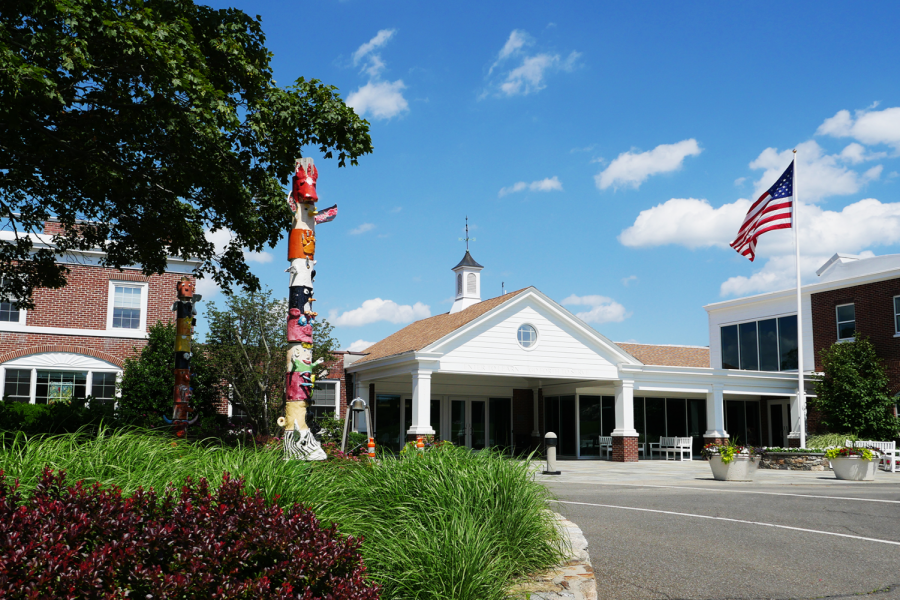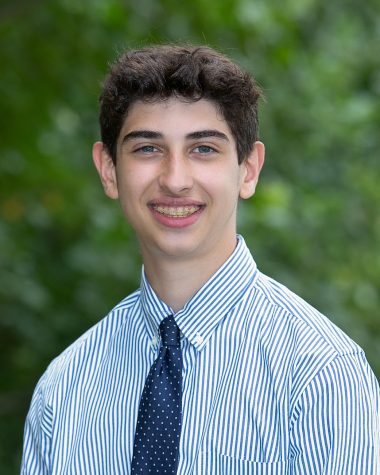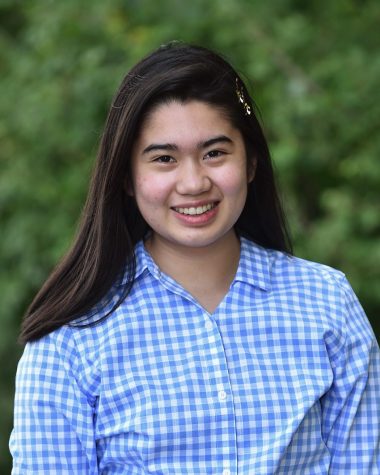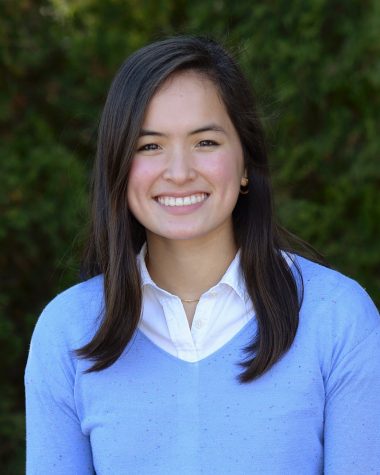Course Selection Advice From SLS Upperclassmen and Teachers
April 18, 2019
When it comes to the upcoming 2019-2020 year at St. Luke’s, students have many new courses to choose from, especially in terms of electives. Since many upper school students are likely confused about what courses to take, we have decided to break down some of the new course selections, while also offering insight into which AP classes students recommend most.
Next year, several departments will be offering new courses across a wide range of disciplines. The Science department will offer Neuroscience and Genetics, which will both be semester-long courses. The History and English departments will unite to form a new American Studies course for juniors. The Department of Leadership Studies, housed in the Center for Leadership, will offer Finance and Entrepreneurship, Speech and Debate, Life Worth Living, and a Leadership Seminar.
In the Science department there will be two unique semester based classes, Neuroscience and Genetics. The Neuroscience class will be taught by Ms. Fancher in the first semester. Students will study how the brain controls our actions, neuroanatomy, and neurological diseases. The class will require students to do hands-on and case-study research and group projects, and engage in class discussions.
“I studied Neuroscience in college and it was really interesting. [In the class at St. Luke’s], we will cover topics that relate and appeal to high school students such as sleep and dreams. I decided to bring it to St. Luke’s because we don’t have any class like it here,” Ms. Fancher notes.
Additionally, Mrs. Clavelli will teach a Genetics class in the second semester. The course will focus on molecular genetics, which Mrs. Clavelli describes as the chemistry behind genetics. For example, students will explore how DNA turns into RNA and proteins and then into our traits. They will also learn about genetic diseases and modern applications of genetics, including sequencing and DNA tests.
Mrs. Clavelli started a course like this at her former school and wanted to bring it to SLS because genetics is her passion, and she thought students would enjoy learning about the traits that make them unique. In fact, she has such a love for genetics that her first dog was named ‘Mendel,’ after Gregor Mendel, who discovered the laws of genetics!
In terms of humanities classes, Ms. Sproule and Mr. Haynes are co-teaching an American Studies course. While literature and history will be at the heart of this class, it will also incorporate art and music. Over the course of the year, students will attempt to discern the true meaning of the American experience both currently and historically as they delve into the impacts of social and cultural values in the U.S. within certain time periods. This course doubles as a history and English course, meaning it would take up two class periods, and fill both subject requirements.
“I am thrilled that we will offer this class at St. Luke’s, in part because my favorite course in high school was interdisciplinary. Every time Mr. Haynes and I meet to plan next year’s curriculum, I get more excited about this offering. I think it’s going to be fun, engaging, and rewarding to examine the relationship between literature and history and how together they inform our current culture,” Ms. Sproule says.
Additionally, several new electives will be offered in the Global Classroom: Life Worth Living, Leadership Seminar, Speech and Debate, and Finance and Entrepreneurship.
In the semester class Life Worth Living, students will question their purpose in life and what is considered the “good life.” Mr. Davis and Ms. Parker-Burgard will co-teach the class, which is based on a course at Yale. By examining different world religions and the works of famous philosophers, students will embark on a personal journey. Students will be asked to have honest group conversations and be immersed in different perceptions of a life worth living.
“I became aware of this course a couple of years ago. Then, Yale approached us about making the course available to secondary students. The course is very popular at Yale, and the instructors there find that the undergraduates have a thirst to think about the good life and their sense of purpose,” says Ms. Parker-Burgard.
The Leadership Seminar will be taught in the second semester by Ms. Gabriele and Ms. Parker-Burgard. According to Ms. Parker-Burgard, the course will treat leadership as an academic subject. For example, students will use a book that outlines the six major theories of leadership and will look at various forms of leadership. Through case-study analysis and group discussion, the students will gain an understanding of which forms of leadership should be applied in certain situations.
Lastly, there will be two semester classes, Speech and Debate and Finance and Entrepreneurship, that will be taught by a new teacher. In the Speech and Debate course, students will learn about a variety of public speaking styles, such as formal debate. Furthermore, they will become comfortable with making arguments, responding to others, and dissecting faulty logic. (No public speaking or debate experience necessary!) Moreover, the Finance and Entrepreneurship elective will cover economics, personal finance, banking principles and entrepreneurship. At the end of the class, students will have to create a business model to showcase the skills that they learned. the class is recommended for students who intend to pursue a career in business.
“I am really excited about the new teacher who will teach these courses and will become the debate coach. She has had prior experience in banking, but she then switched to debate and public speaking,” adds Ms. Parker-Burgard.
While teachers are certainly a great resource for course advice, some of the best guidance can come from upperclassmen who have already taken the classes that freshmen, sophomores, and juniors are considering. The Sentinel recently asked upperclassmen for their advice regarding courses, and they all suggest that students challenge themselves in the beginning of the year to discover what work pace and homework load they are comfortable with. All of the surveyed students note that it is important for students to be realistic about their academic personality because everyone is unique and knows what difficulty is the right balance for them.
“My advice would be to go for a difficult schedule and then if you’re struggling, drop the class that is the least rewarding, usually the one that you’re up late working on or is just plain annoying,” Cate Mathews ‘21 comments.
The surveyed upperclassmen also suggest that students speak to peers who have experienced the course before and are familiar with its workload and difficulty.
“Don’t be afraid of taking an AP just because it’s an AP,” Clara Pakman ‘19 says. “Talk to older students who have experienced the classes so you can judge how much work each AP has, and then make your final decision.”
Carolina Warneryd ‘19 has a wealth of experience and knowledge when it comes to AP courses. She shares that “the hardest [AP classes] in terms of material are definitely AP Chemistry and AP BC Calculus. The AP classes with the most work are [AP United States History], AP Biology, AP BC Calculus, and AP French and Spanish.”
Furthermore, current STEM and Global Scholars advise students to enroll in the Scholars program only if they are genuinely passionate about their project and are willing to devote a significant amount of time to it every day. The program also requires specific prerequisites, so seniors recommended that underclassmen start these classes during freshman and sophomore year.
“The best thing to do is talk to Mr. Yavenditti to organize when you will fit them into your schedule,” Warneryd advises. “The scholars program is not hard to manage if you are smart about planning – doing work over the summer and making sure you do something every day in class is a good idea.”
Finally, one of the students’ most important pieces of advice is that no class or grade is worth sacrificing your mental health. They recommend dropping courses that are a significant source of stress. Many have gone through the dropping process, and share that although it may feel as though you are admitting failure, it ends up being the right choice to reduce anxiety and boost academic confidence.
While choosing classes can be daunting, taking advice from upperclassmen and learning about new courses can certainly help to make the process a little easier. Course requests are due by 6:00am on Monday, April 22.






